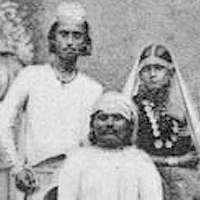
The largest Hindu organisation in the country has stressed that people whose fore-fathers came as indentured labourers from India should continue to work hard for the progress of our country.
National President of the Shree Sanatan Dharam Pratinidhi Sabha Sarju Prasad said people have a very strong future ahead in Fiji.
He added that the Sabha is also working closely with the government.
Meanwhile, 90 year old Kamla Prasad Shandil of Lajonia Labasa said a few years after the indenture system ended, his father and others assisted in setting up a school outside Labasa town.
He said the labourers saw education as a need for the girmityas.
He said children only could study up to class four and many students who studied have migrated and some have good jobs.
On this day, 134 years ago, the first group of indentured labourers arrived in Fiji from India to work in the sugar cane plantations.
They were brought in to work in the sugar cane fields and this boosted Fiji's earnings for a long time as the sugar industry was the top income earner for the country.
The first indentured labourers arrive in Fiji aboard the Leonidas.
The ship set sail in Calcutta on March 3rd and arrived in Fiji on May 14th, with 373 male and 149 female labourers.
Cholera, dysentery and smallpox were also onboard. 17 labourers succumbed to these diseases.
A tragic incident occurred in 1884 when the fifth emigrant ship to Fiji, Syria was wrecked on the Nasilai reef, off Nausori on May 11th killing fifty six Indian immigrants and three sailors.
In 1916, the indenture system was officially abolished by Britain.
The contracts of the indentured labourers, which they called GIRMIT or agreements, required them to work in Fiji for a certain period of time as specified in their agreements.
After 5 years of girmit they were free to return to India on their own expense.
After 10 years of girmit, the colonial government was compelled to provide free passage back to India to every girmitiya and their children.
In the case of Fiji 25,000 Girmitiyas returned to India, many even before 5 years of indenture.
However, the majority of the remaining 35,000 Fiji Girmitiyas remained in Fiji and continued to work in the industry as they did not want to return to India.
Story by: Vijay Narayan
Stay tuned for the latest news on our radio stations
